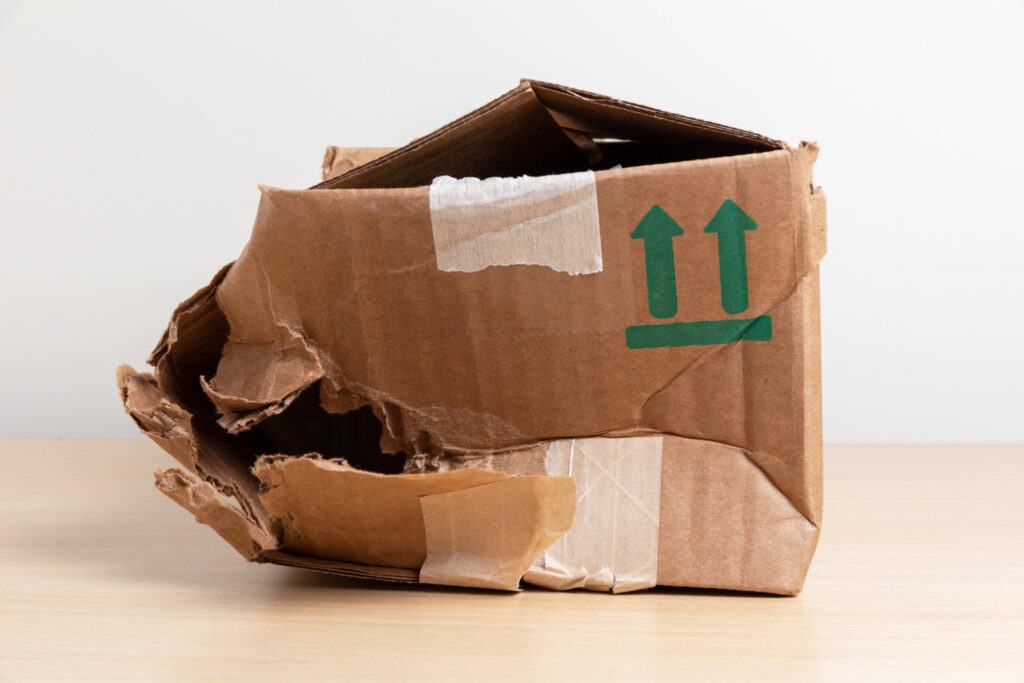5 tips for fret-free freight claims
Those who work in the cargo-carrying business know one thing for certain: there are many moving parts.
Carriers, freight forwarders, freight brokers, shippers, and receivers all play an important role within the lifespan of a shipment to ensure it gets to its destination intact and in a timely manner. However, any or all of these players could be subject to a freight claim in the event that things don’t go according to plan, which can be disruptive and daunting.
Luckily, good habits and a little preparation can go a long way when it comes to dealing with a freight claim. You and your business should be better equipped for the next time things go off the rails, off the road, or overboard if you keep the following five tips in mind:

Adopt proactive practices
Being proactive about freight claims is the best way to combat them. When you are considering particular routes, products, trucks, drivers, and equipment, collect all information you can.
Keeping a particular eye out for potential future issues can go a long way if you monitor on current trends, as well as risks. For instance, is one particular type of packaging leading to more incidents that could otherwise be preventable? Are certain products causing more trouble than they’re worth? Do the loading procedures at a troublesome pickup point need to be reviewed and revised?
If you operate as an intermediary, are you properly vetting each carrier in compliance with laws at the time of onboarding and throughout the relationship? If you are a shipper, has your broker or forwarder confirmed that they are taking those steps.
If you are a carrier, do you have a comprehensive carrier safety plan in place that involves properly vetting your drivers, monitoring their abstracts and your safety fitness certificate record, investigating incidents when they occur, and engaging in re-training when appropriate (among many other things)?
It would also be prudent to consider whether your staff could use any additional training. Even for long-tenured employees, a refresher course on best practices can help correct bad habits that may have developed over time.
Consider focusing on specific areas that are causing issues and make sure everyone is on the same page on how to correct them – you might be surprised at how things change for the better.
Understand your contractual obligations
Maintaining a solid understanding of where your contractual responsibilities begin and end is key to dealing with freight claims.
Your contract pertaining to a particular shipment may also contain provisions such as notice requirements that obligate you to inform another party of an issue within a certain timeframe, procedural obligations that give instructions on how freight claims must be filed or steps to take right away in the event of an incident, indemnification provisions and limits on liability.
Document, document, document
Thoroughly documenting the condition of a shipment when it comes into your care and control is paramount. Take pictures, write notes (including marking up a bill of lading), save email conversations, written agreements, and tracking reports in order to create comprehensive records.
It is also important to keep packing slips, bills of lading, load confirmations, invoices, and temperature downloads pertaining to all shipments. If communications are had over the phone, try and get in the habit of taking detailed notes of those conversations.
If a potential claim arises, take the time to organize all corresponding documentation related to the shipment, and pay special attention to the alleged damage at issue – how much of the product has been impacted, and to what extent? Can some of it be salvaged?
The more you can gather at the outset, especially regarding the damage to the cargo, the easier it will be to figure out the best way forward. When in doubt, document!
Notify all relevant parties
If you have a potential freight claim on your hands, it’s a good idea to let all relevant parties know as soon as possible. Waiting until things get worse will typically make the claims process more difficult down the line, and important information and evidence could get lost or overlooked.
You should also notify your insurer of potential claims, as most insurance policies require an insured to notify them of potential claims as soon as possible.
Even if it’s just to keep them informed about the current status of the situation, your insurer can provide valuable information on your policy coverage and potentially assist you with addressing the situation.
Seek professional assistance
If you’re worried about things getting out of hand, don’t be afraid to contact the experts. Consult, communicate, and co-operate with your insurer, and consider getting legal representation to assist with the claims process.
They’ll help clarify what can sometimes be a confusing and intimidating system. Your insurer and legal representation will also likely arrange for experts to be involved who will help prove or defend your case. Your legal representation can give advice on the best steps you can take to prevent a similar issue in future.
- This article was co-authored by Michael Gargaro, Miller Thomson LLP.
Have your say
This is a moderated forum. Comments will no longer be published unless they are accompanied by a first and last name and a verifiable email address. (Today's Trucking will not publish or share the email address.) Profane language and content deemed to be libelous, racist, or threatening in nature will not be published under any circumstances.